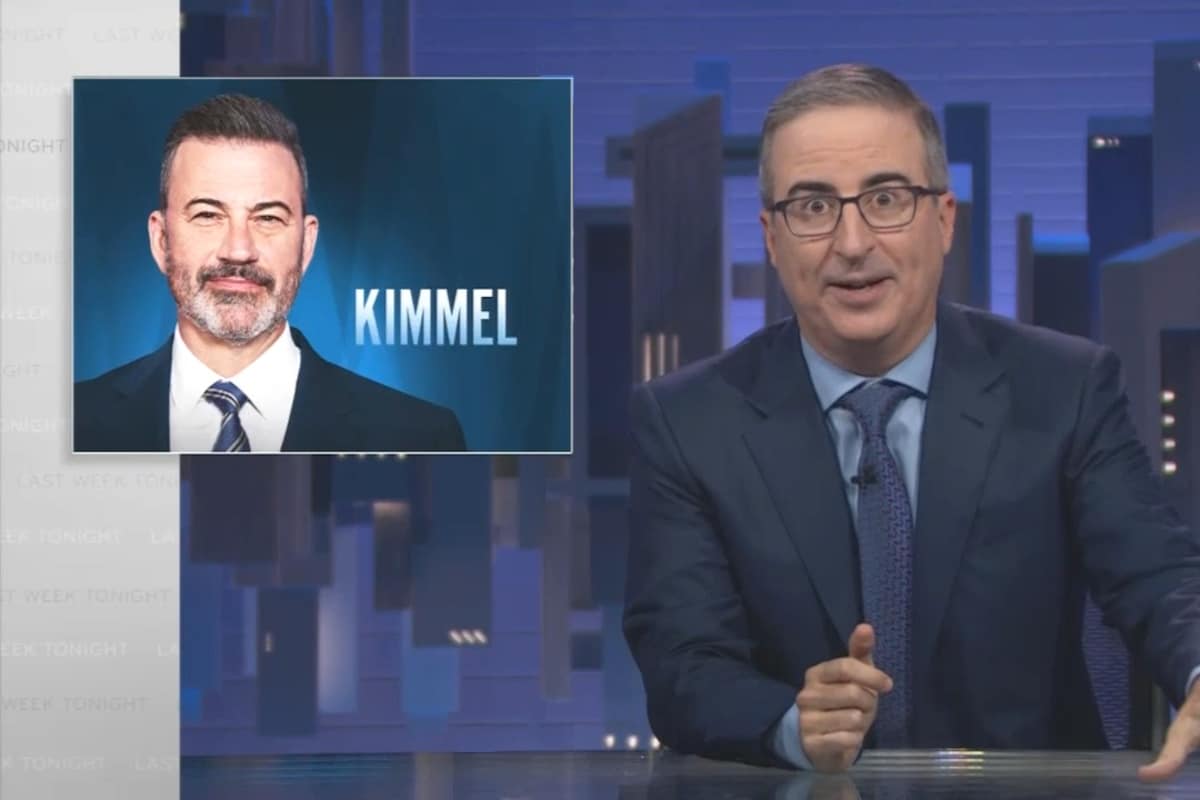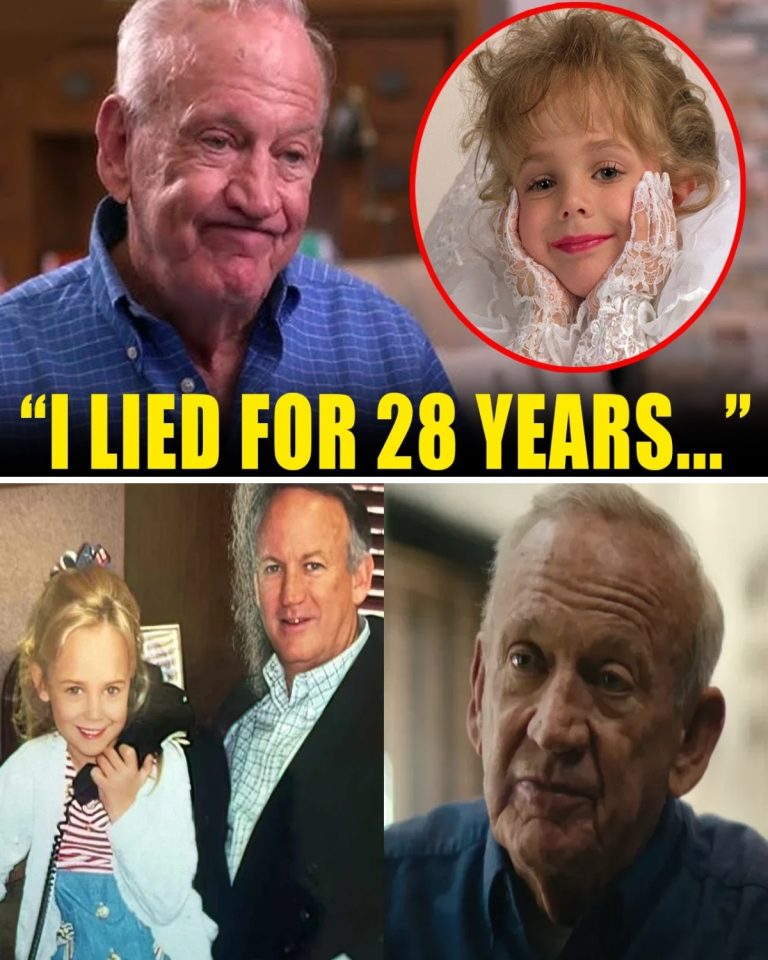On Sunday’s Last Week Tonight, John Oliver delivered one of his most impassioned monologues to date — a blistering rebuke of ABC and parent company Disney for indefinitely suspending Jimmy Kimmel Live! under political pressure.

For Oliver, the decision wasn’t just about one comedian. It was a “turning point” for free expression on broadcast television, one that could shape how networks respond to political intimidation for years to come.
“A Laughably Weak Pretext”
Oliver began by dismantling the justification for Kimmel’s suspension. The controversy stemmed from a September 15 monologue where Kimmel mocked “the MAGA gang” for their attempts to distance themselves from the alleged assassin of conservative activist Charlie Kirk.
“He didn’t denigrate Charlie Kirk or make light of his 𝓀𝒾𝓁𝓁ing,” Oliver explained. “He pointed out that many on the right seemed desperate to weaponize Kirk’s death—an argument that’s aged pretty well, given, you know, everything that’s happened to Kimmel since.”
Oliver called the rationale for sidelining Kimmel a “laughably weak pretext” — a cover story for political and corporate cowardice.
The Broader Threat
The HBO host then zoomed out to the bigger picture.
“If the government can force a network to pull a late-night show off the air — and do so in plain view — it can do a lot worse,” he said.
Oliver argued that the FCC’s pressure on ABC, particularly comments from Chair Brendan Carr, violated well-established legal precedent. U.S. courts have repeatedly ruled that government officials cannot coerce private entities into suppressing speech they find objectionable.
“There is clear precedent here: the government cannot pressure a private company into silencing a voice simply because it doesn’t like what was said. Disney has the resources to fight this in court. The question is whether they have the backbone.”
When Capitulation Becomes Precedent
Oliver pointed out how quickly the dominoes had already begun to fall. After Kimmel’s suspension, Donald Trump celebrated the move on Truth Social, then called for NBC to also cancel The Tonight Show with Jimmy Fallon and Late Night with Seth Meyers.
“If you give in once, the demands don’t stop. They multiply,” Oliver warned. “You think they’ll be satisfied with Jimmy Kimmel? No. Next it’s Fallon, Meyers, Colbert — whoever annoys them next week.”
Addressing Disney CEO Bob Iger Directly
The sharpest moment of the segment came when Oliver spoke directly to Disney CEO Bob Iger, urging him to reject short-term convenience in favor of long-term principle.
“History’s also going to remember the cowards who definitely knew better but still let things happen — whether for money, convenience, or comfort,” Oliver declared.
He closed the segment with an uncharacteristically raw challenge:
“When they come to you with stupid, ridiculous demands… instead of rolling over, stand up and use the only phrase that can make a weak bully go away: ‘F*ck you, make me.’”
The studio audience erupted in applause.

Why Oliver’s Rebuke Resonates
Oliver’s segment landed differently from other late-night defenses of Kimmel because of his unique track record on issues of free expression. Throughout his career, Oliver has used his HBO platform not just for laughs but for in-depth examinations of authoritarian tactics and media suppression.
Net neutrality (2014 & 2017): Oliver dedicated entire episodes to the dangers of corporate and government control over internet access, mobilizing viewers to flood the FCC with public comments.
Authoritarianism abroad: He’s repeatedly spotlighted how leaders in countries like Turkey, Russia, and the Philippines muzzle dissent by weaponizing legal and regulatory tools.
Press freedom: Oliver’s 2017 segment on “fake news” and journalism laid out how democratic societies crumble without a robust press to hold leaders accountable.
By framing Kimmel’s suspension as part of that continuum, Oliver made the stakes clear: if political intimidation can silence comedy, it can silence anyone.
A Growing Chorus of Support
Oliver’s remarks join a wave of solidarity across the late-night landscape and beyond.
Stephen Colbert called the suspension a “blatant assault on freedom of speech.”
Seth Meyers told his audience: “This is a pivotal moment in our democracy, and we must all stand up for the principles of free expression.”
Jon Stewart extended his Daily Show hosting duties midweek to bring on Nobel laureate Maria Ressa, reframing the controversy as part of a global battle against authoritarianism.
Even Jay Leno, once one of Kimmel’s fiercest rivals, spoke out in support, saying: “I’m a huge proponent of free speech. I’m on Jimmy Kimmel’s side.”
Labor unions have also weighed in. The Writers Guild of America, SAG-AFTRA, and the Directors Guild of America issued joint statements condemning Kimmel’s removal as “an assault on the First Amendment.”
Why Disney’s Decision Matters
What makes Disney’s role unique, Oliver argued, is its power to set industry precedent. As the owner of ABC, Disney’s decision to suspend Kimmel was not just about one show but about how much autonomy entertainment companies have in the face of government pressure.
Legal scholars note that if Disney were to fight the FCC’s threats in court, they would likely prevail — reinforcing the limits of regulatory influence. But if Disney instead opts to quietly retire Kimmel’s show, it risks emboldening future censorship efforts.
A Familiar Pattern
Oliver compared the current controversy to earlier moments when corporations bowed to political intimidation:
The Dixie Chicks (2003): Country radio blacklisted the band after they criticized George W. Bush, aided by corporate consolidation in radio ownership.
Bill Maher’s Politically Incorrect (2002): ABC canceled the show after Maher’s controversial 9/11 comments, citing a move toward “straight entertainment programming.”
Hollywood blacklists (1950s): Studios avoided casting writers and actors accused of communist sympathies to avoid government scrutiny.
Each moment, Oliver suggested, showed how quickly cultural expression can collapse when corporations choose compliance over courage.
The Bigger Picture: Free Speech on the Line
For Oliver, the danger is less about one host and more about the precedent:
“If late-night comedy — a space that has always thrived on pushing boundaries and poking at the powerful — can be muzzled this easily, then every other form of dissent is at risk.”
That’s why he urged Disney to resist: to show that even a global conglomerate could stand up to government bullying when it mattered most.
Conclusion
John Oliver’s fiery monologue reframed Kimmel’s suspension as more than a corporate decision — it is a test of American democracy’s resilience.
By addressing Bob Iger directly and warning that “history will remember the cowards,” Oliver challenged Disney to prioritize principle over convenience. His final words were not just advice to one CEO but a rallying cry for an entire industry:
“The only way to deal with a weak bully is to say: ‘F*ck you, make me.’”
As late-night television faces its most precarious era in decades, Oliver’s warning resonates far beyond comedy. It is a reminder that free speech, once ceded, is rarely won back.







